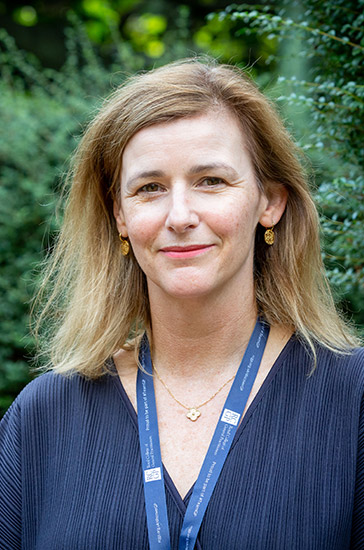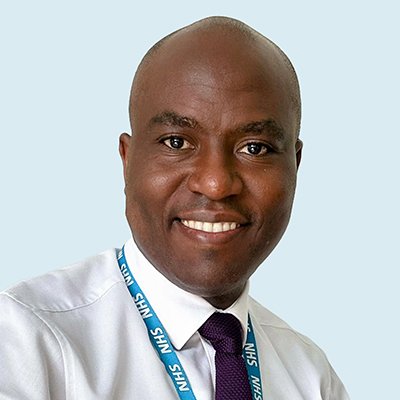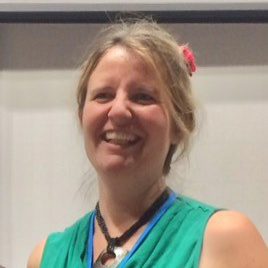

Gambling: The hidden public health crisis
GP Frontline talks to two GPs and a future GP about how their careers have been, and will continue to be, enriched by their involvement in academia and primary care research

"Research shows that staff who are involved in research are more satisfied," says Dr Emma Tonner, a registrar doctor who recently completed a Faculty of Medical Leadership and Management National Medical Director's Clinical Leadership Fellowship at the National Institute for Health and Care Research. "You can see the impact of the research you are doing because you are a clinician using it in practice, and because you are a clinician you have questions that you want to answer in order to help your patients.”

Professor Sophie Park is a GP, the RCGP Scientific Foundation Board's new Chair, and Professor of Primary Care and Clinical Education in the Nuffield Department of Primary Care Health Sciences at the University of Oxford. She adds: "Academic general practice helps you to be curious about what you're doing, about your patients. You have time to think about things differently and implement that in your clinical practice."
Dr Serge Engamba, GP Primary care Academic CollaboraTive (PACT) Vice-Chair, research lead for Norwich PCN and the Primary Care deputy speciality lead for NIHR's Clinical Research Network East of England, agrees: "I've always been fascinated by the fact that everything we do as clinicians is backed up by evidence which is the result of someone’s research, and I always wanted to be part of that story, improving what we do or generating solutions,” he says.
In his view, research can help care to be ‘more flexible and patient-oriented'. All three doctors explain in detail the ‘symbiotic relationship’, as Sophie calls it, between research and clinical practice and how they believe this can make them better GPs.
Sophie argues that research teaches ‘critical reflection, which is crucial to being a GP’. “It really helps to think of lots of different ways to approach a problem, and the range of knowledge that might help that patient,” she explains.
"Good care is evidence-based care," says Emma, explaining that doing research better connects clinicians with the evidence base, allowing them to provide excellent care and the opportunity to explore their own clinical questions.

Emma is on a mission to ‘make research everyone’s business’ and thinks this is especially vital for those early in their careers, or those who are yet to start. "It’s really important to encourage medical students, and to really engage in those conversations at that early stage, so that people don’t rule out doing research during their career, and recognise that general practice is an academic speciality," she says.
Sophie takes this further, emphasising how vital it is to offer people opportunities to integrate clinical practice and research ‘throughout their training’ from medical school to GP training, but also post-qualification. She points to research scholarships for students, innovative training posts for postgraduate trainees, academic foundation posts, clinical fellowships and lots of different sorts of roles to encourage people to connect with the community of academic general practice. "Almost everyone who has time to spend with this community will find it very exciting and will want to do more of it," she says.
Serge doesn’t see an interest in primary care research being confined to doctors, recounting that his vision is ‘for a medical field where research is business as usual and fully-embedded into what we do every day’. “It’s how we generate evidence and new knowledge,” he explains, “it’s important that every member of the primary care team gets an opportunity of that interest in research, we need all perspectives for research to be truly representative."
All three doctors describe the benefits, both personally and professionally, that they’ve experienced from being part of the academic community. Sophie describes it as "incredibly stimulating, inspiring, friendly and supportive, in a field that has really flourished in the last 10 years."
"You can't conduct meaningful research in isolation; being part of a professional community is crucial," Serge says. "Just attending a conference can leave you feeling inspired, seeing so many people who share your passion and witnessing the incredible work being done across the country."
Emma would encourage GPs and trainees who are interested to “reach out and connect with those around you.” This can be as simple as reaching out to the research lead in the practice or approaching the local academic department or NIHR infrastructure. “Mentorship and support is really important," she says.

Despite their enthusiasm, all three doctors recognise the reality that balancing research with clinical practice can be difficult, particularly given the intense pressures GPs are working under. Emma explains that secondary care is often better at integrating research into job plans, and this is an area where primary care can improve.
"You do need to have a level of discipline in setting boundaries. The work we do as GPs can be notoriously stressful, so you need to make sure you look after yourself," Serge says, adding that what helps is 'perspective'. He sees his various roles not as one long week but ‘a succession of short weeks. Each time you change the activity, you have a reset, so you get that renewed energy.’
"It’s a full life - but that’s nice," Sophie says. "Because I do both roles and also see patients, it always feels refreshing that you have that contrast across the week."
The overarching message coming from Serge, Emma and Sophie is to encourage anyone interested in academic general practice or primary care research to get involved.
"Workload is a major issue for general practice—we're all overwhelmed. It’s hard for anyone to want to take on anything that feels like extra, but there are creative ways, thinking outside the box, to turn your everyday tasks into something that benefits both you and the wider profession," says Serge.
"More funding and more time will always be helpful, but we actually have some excellent infrastructure in place, we just need to be better at connecting people to it," Emma concludes.
To learn more about how RCGP can support those interested in research or for further information on how the College supports and promotes research, visit Research at RCGP
Read more
Thank you for your feedback. Your response will help improve this page.



